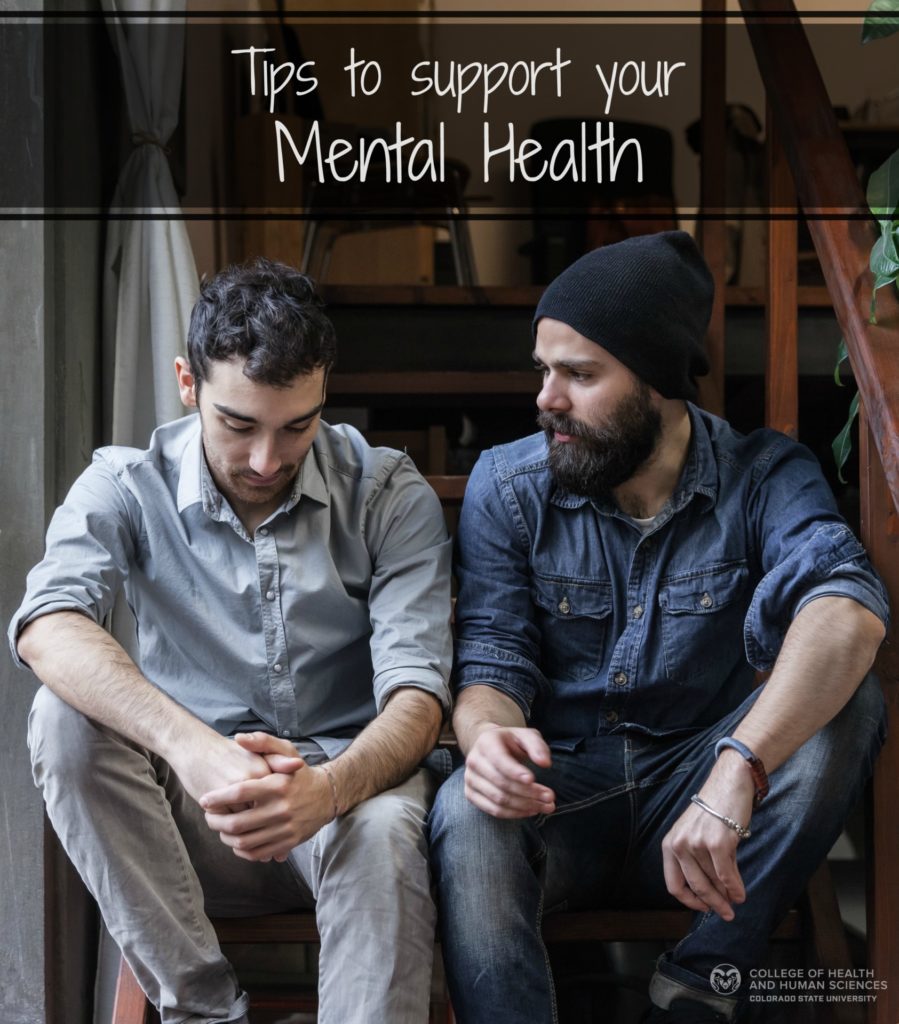May is Mental Health Awareness Month, a national observance with the goal to fight stigma, educate the public, and provide support.
Living with a mental health condition is more common than one might think; in fact, 1 in 5 adults in America will experience a mental health condition at some point in their lifetime. While you might not be among the 20 percent affected, you may still be impacted by a mental illness  through friends and family.
through friends and family.
Recently, there have been a variety of TV shows, social media posts, and podcasts focusing on suicide and other mental health issues. While these may increase the conversations around mental health, they may also give space to negative comments or even glamorization of suicide; it is crucial to see these as opportunities to discuss the topics in a healthy way.
There are several ways to offer support to yourself and those around you.
Listening
With the constant stimulation of devices and the general pace of American life, we often forget the basics of simply listening to our friends and family. Work to be present however you need. This may mean putting your phone on silent when you’re having lunch with a friend, or instead of meeting a coworker at a noisy restaurant, grab your meal to go and take it outside to a park.
If you find yourself getting distracted during a conversation, take a moment to count five things you see in the room to bring you back to the moment. When people know that they are truly being listened to, they will feel more comfortable and open up to you.
Know what to look for
While there is no exact combination of symptoms, there are some general warning signs of mental health issues that we often brush away out of fear. While those warning signs could just be someone having an off day, it never hurts to simply ask if they are doing okay or if they need anything. This opening of support could be a saving down the road. The American Psychiatric Association have made available these general warning signs:
- Withdrawal: Recent social withdrawal and loss of interest in others
- Drop in functioning: An unusual drop in functioning, at school, work or social activities, such as quitting sports, failing in school, or difficulty performing familiar tasks
- Problems thinking: Problems with concentration, memory, or logical thought and speech that are hard to explain
- Increased sensitivity: Heightened sensitivity to sights, sounds, smells, or touch; avoidance of over-stimulating situations
- Apathy: Loss of initiative or desire to participate in any activity
- Feeling disconnected: A vague feeling of being disconnected from oneself or one’s surroundings; a sense of unreality
- Illogical thinking: Unusual or exaggerated beliefs about personal powers to understand meanings or influence events; illogical or “magical” thinking typical of childhood in an adult
- Nervousness: Fear or suspiciousness of others or a strong nervous feeling
- Unusual behavior: Odd, uncharacteristic, peculiar behavior
- Sleep or appetite changes: Dramatic sleep and appetite changes or decline in personal care
- Mood changes
For more detailed information on these signs, as well as helpful resources, visit the APA site.
Suicide can be prevented by being aware of the risk factors and warning signs, listening, and taking action. The American Foundation for Suicide Prevention offers a variety of signs that may indicate a person is considering suicide, as well as helpful resources and support. Additionally, the Office of Support and Safety Assessment at Colorado State University encourages the CSU community to Tell Someone about concerns regarding the safety or mental health of a fellow CSU student or employee.
Create your own de-stress toolbox
Life is busy, and it is easy to get caught up in what you “should” do—outside pressure from what you might assume people want you to do, and inside pressure from living up to a self-made standard. All these pressures, combined with our daily activities, can cause stress, anxiety, depression, mental breakdowns, social anxiety, and more.
Taking the time to find what helps you unwind in a healthy way and implementing this in your life can help keep your stress level manageable, as well as increase productivity and general quality of life. Implementation can be as simple as taking a weekly yoga class, taking a walk on your lunch break, putting your phone away for 10 minutes at a time, or deep breathing.
Deep breathing has been proven to be one of the best ways to lower stress in the body; even 10 minutes of meditation per day can help decrease stress. There are a number of apps such as Breathe, Calm, or Headspace that can help you with breathing and walk you through meditation.
Learn more about creating your own de-stress toolbox here.
Seeing a counselor
Just like we need annual checkups with a doctor, it never hurts to check in with a counselor twice per year to maintain your mental health. If you’re looking for a therapist, you can search for therapists in your area on our website.
Story contributor Amy Huff is a graduate assistant and student in the Counseling and Career Development master’s degree program in the School of Education, part of the College of Health and Human Sciences.